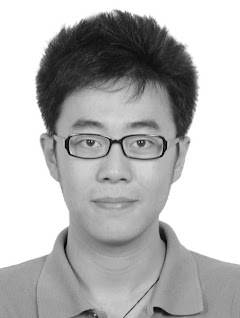Beat
I normally cover political, financial, sports, entertainment and feature stories.
One Shot

“I don’t do many assignments because most of my work responsibilities are with the Beijing Pictures Desk, where I select the best images for the Reuters wire. But the music festival scene in Beijing is a story that I’m familiar with and quite fond of, so in May 2011, I volunteered to cover it. The end result wasn’t very satisfying but the next year, I decided to do the story again. I had learnt a lot from my earlier experience, and managed to get rid of the steel barriers and the security personnel to get this image of nothing but excited rock fans.”
Profile
I learnt to photograph by spending lots of time looking at colleagues’ and other professionals’ work. I tried to start shooting scenes and stories I was familiar with, and I did it again if the first time wasn’t good enough.
My first assignment was a last-minute decision by my boss, who wanted to send a photographer with text and TV journalists to cover an MTV promotional video release about human trafficking, which was followed by interviews with the Chinese film celebrities who took part. I took so many pictures and tried so many angles that one of the celebrities nodded and smiled at me. I learnt that there is no such thing as an easy assignment, and hard work will always be appreciated.
I was lucky enough to interview Ge Xiaoguang, the man who painted the giant portraits of the late Chinese Chairman Mao Zedong, which have hung on the Tiananmen Gate for the last 30 years. It was an exclusive meeting organised by Reuters TV, and I tagged along. Unfortunately, the artist wasn’t very happy with me taking pictures - he even threatened to throw me out. But I managed to get some 40 images, and Reuters published an exclusive story ahead of the 90th anniversary of the founding of the Communist Party of China. Several months later, to my own surprise, I became a good friend with the painter. Apparently he was also a shutterbug, and we had lots of things to talk about.
After this interview with the painter, I learnt that I shouldn’t assume anything before an assignment. I should always try to do my research and contact the people in the story in advance.
I was really excited to cover the Beijing music festival in 2012. I used a monopod and wireless remote shutter, and when other photographers saw me with this equipment, they were all shocked. It was exhilarating to know that I was the only one who did his homework and found a better way to cover the story.
Being part of a global news agency, I usually try to illustrate my stories while bearing in mind that someone from another part of the world may have no knowledge at all of what I am shooting.
I respect James Nachtwey for the great documentary photography he has produced since the 1980s, and for his everlasting trust that photography could change the world.
